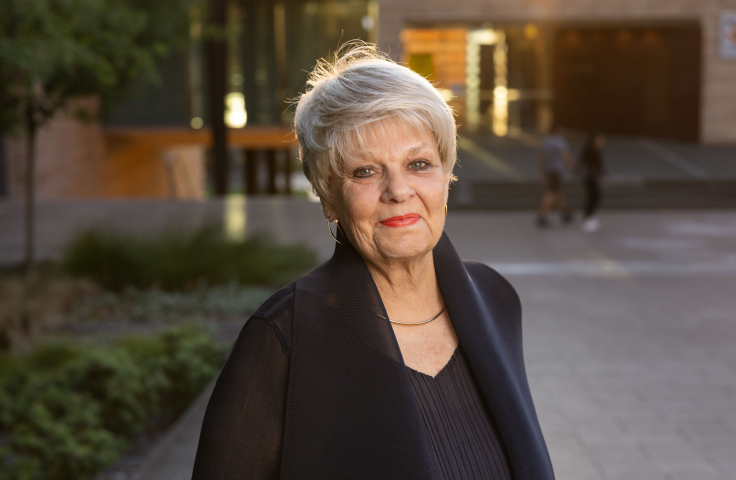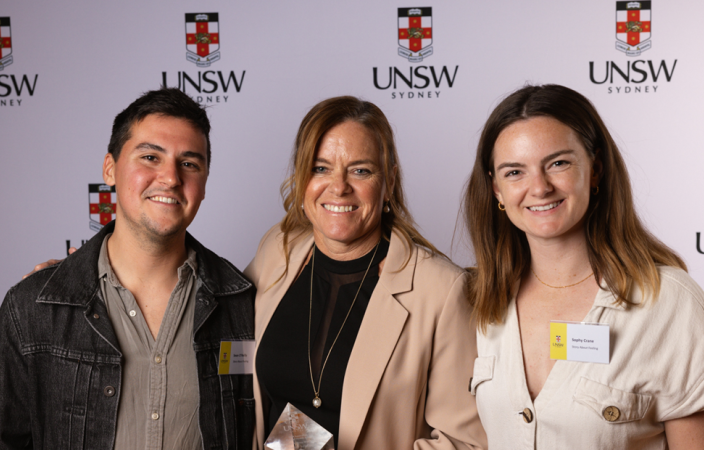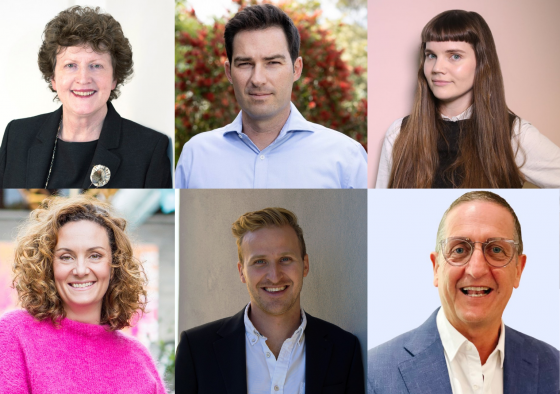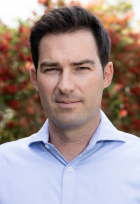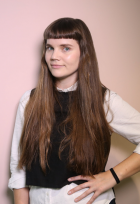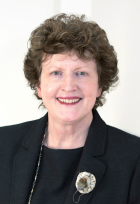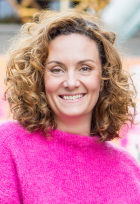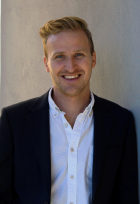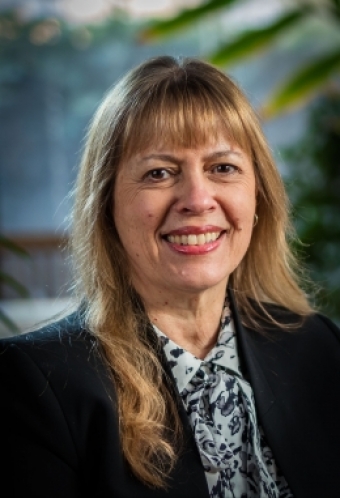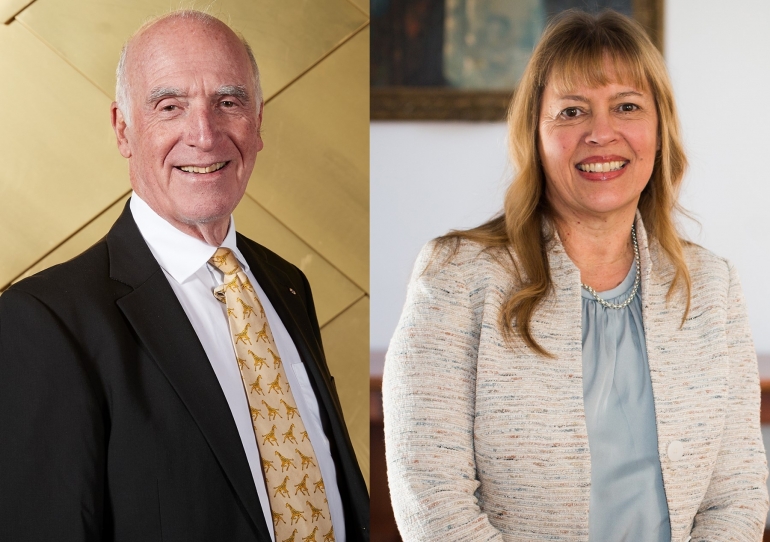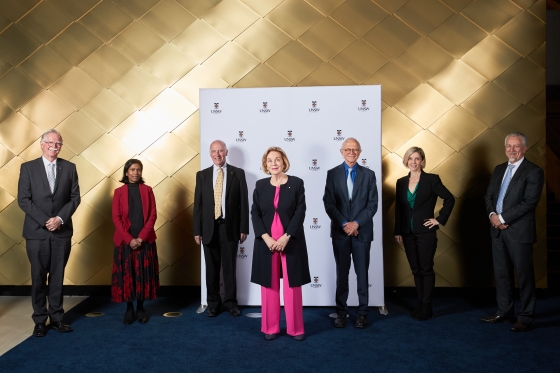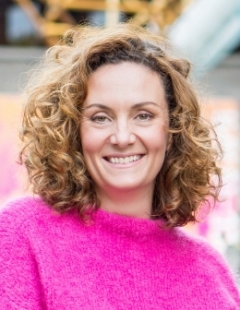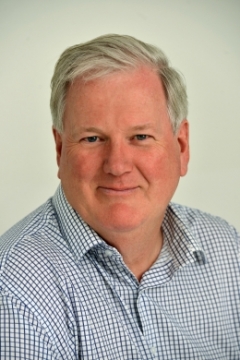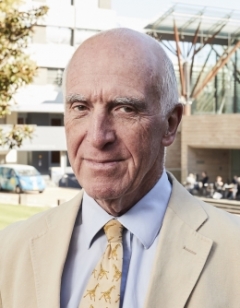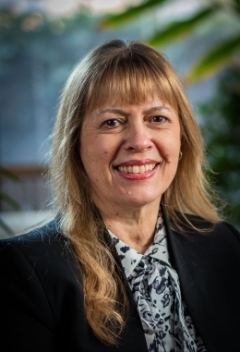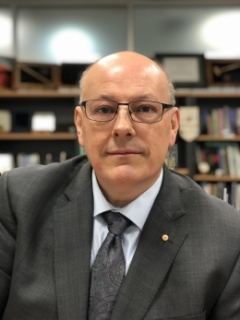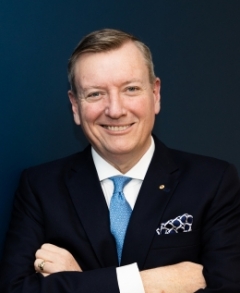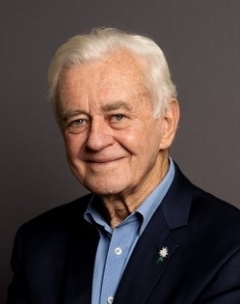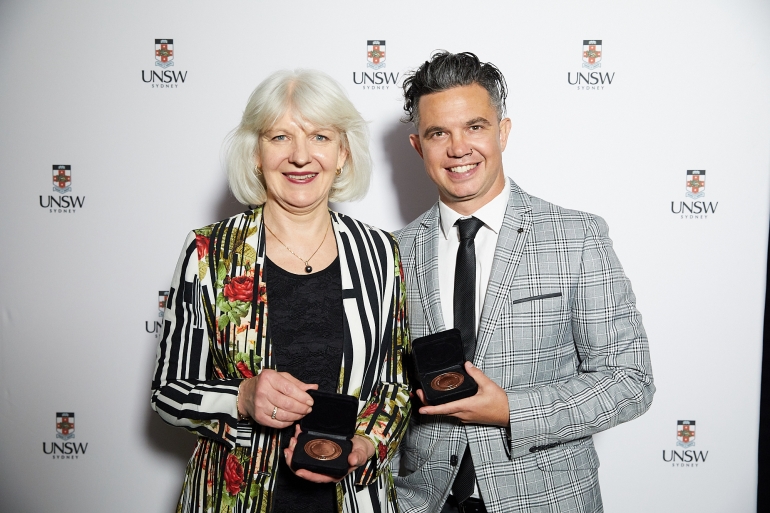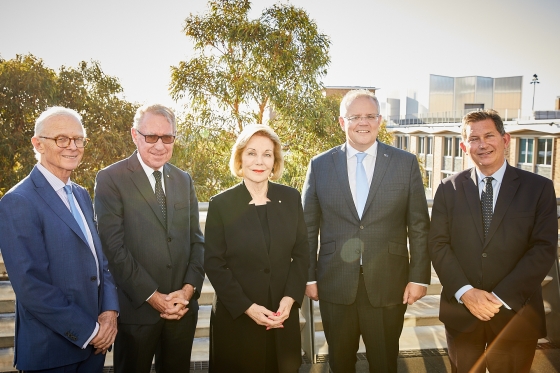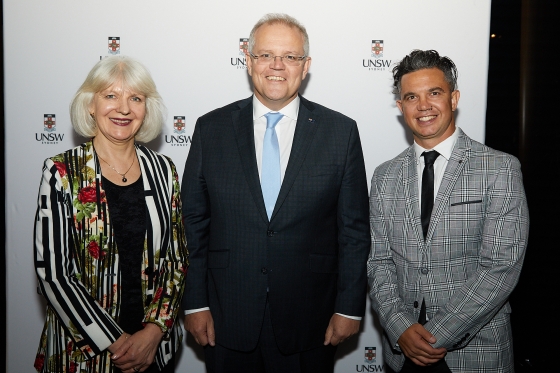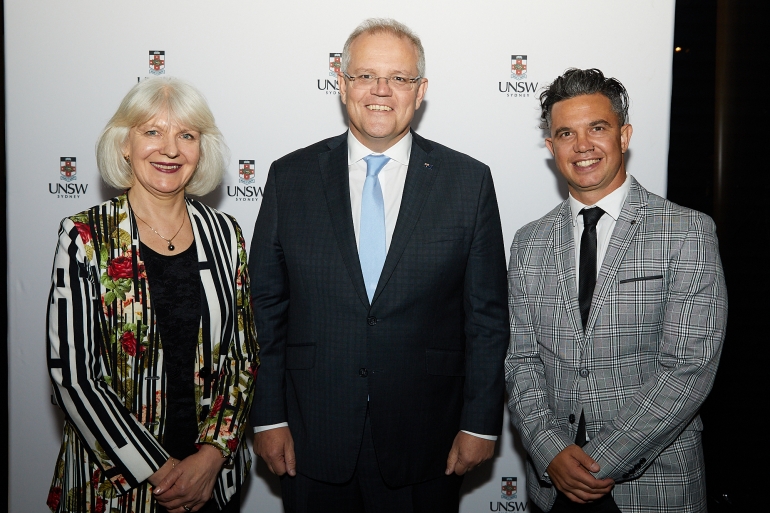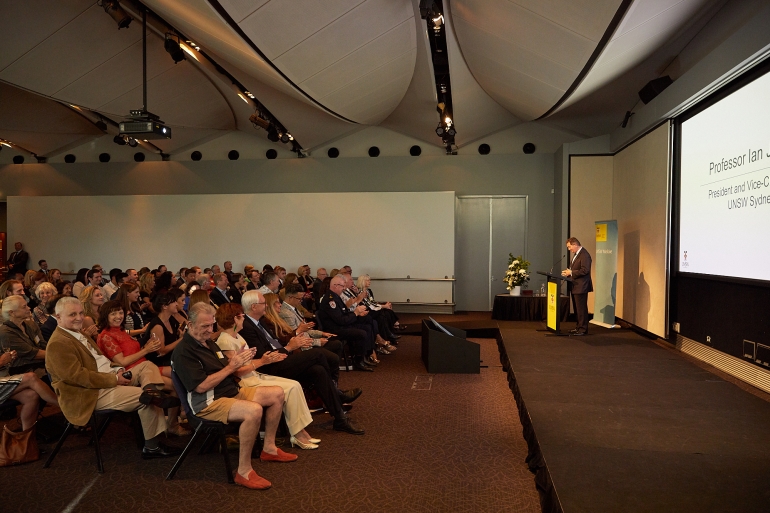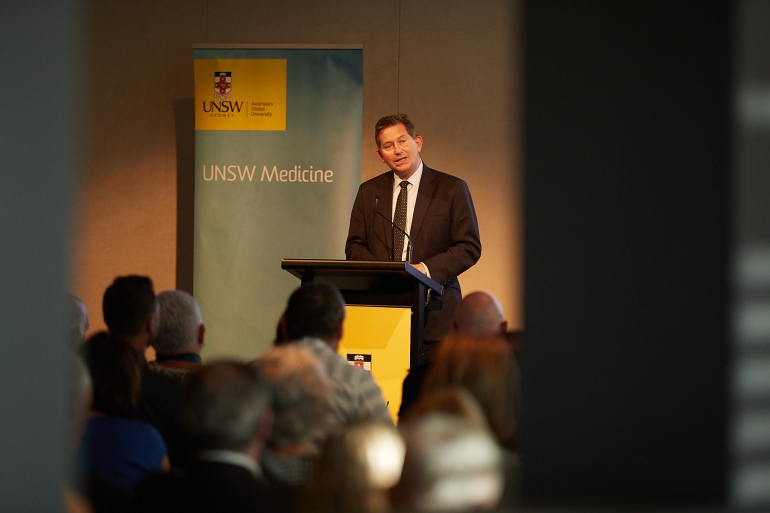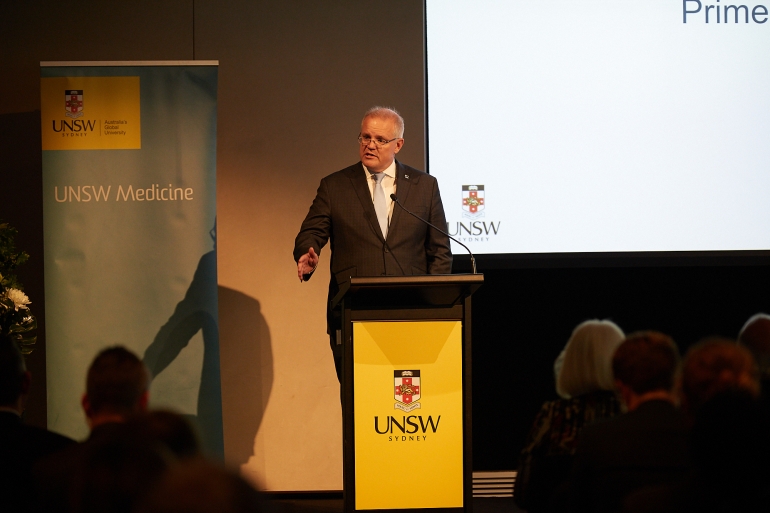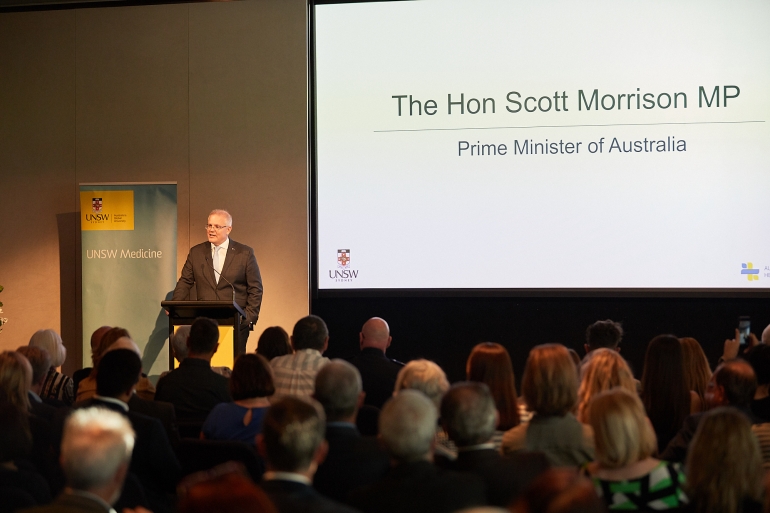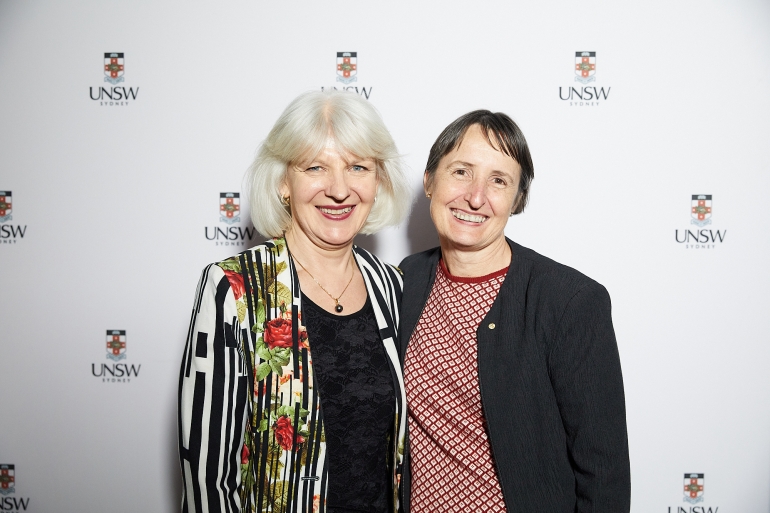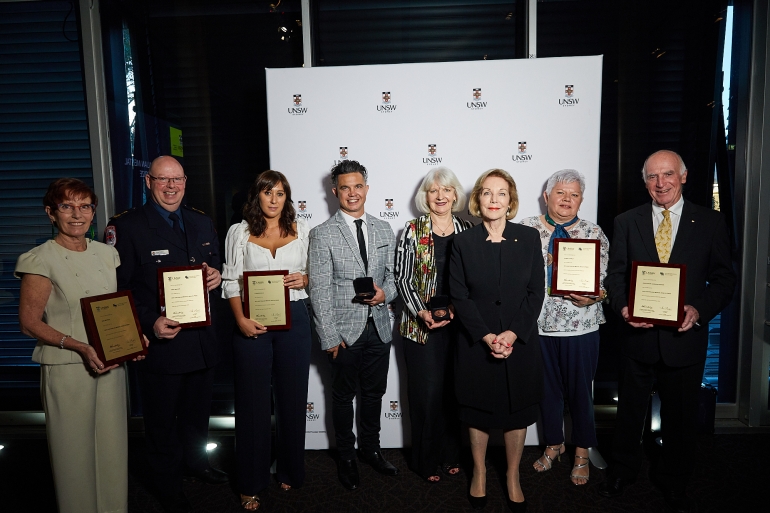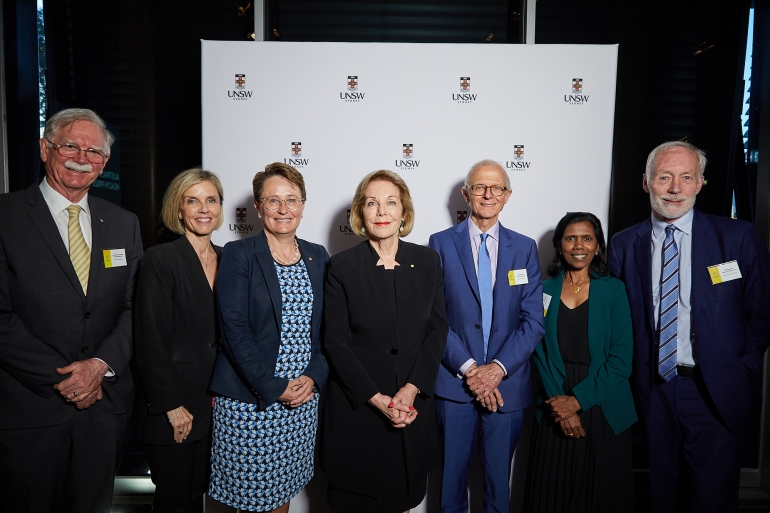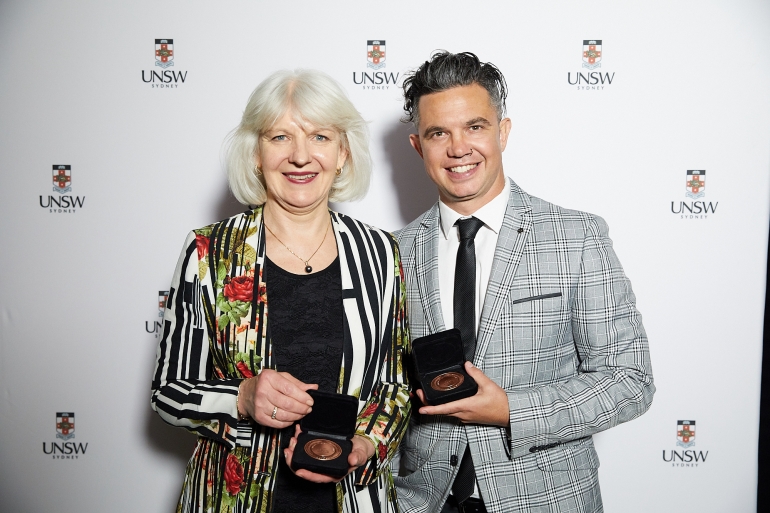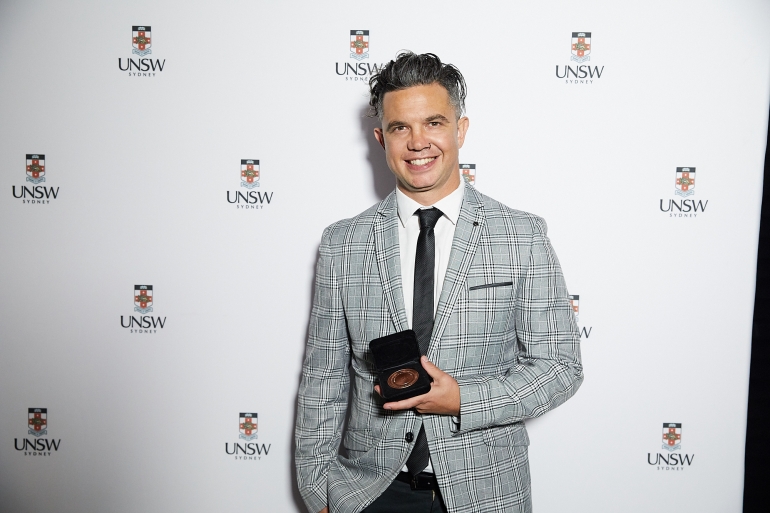Mental health advocate Honor Eastly and Professor Ian Hickie AM are winners of the 2021 Australian Mental Health Prize.
Dual winners of the 2021 Australian Mental Health Prize were announced on November 2021, recognising two individuals striving to improve the mental health landscape across the country.
The 2021 winners of the award are Honor Eastly, mental health advocate, writer and podcaster, and Professor Ian Hickie AM Co-Director, Health and Policy, the University of Sydney's Brain and Mind Centre. The Assistant Minister to the Prime Minister for Mental Health and Suicide Prevention, the Honourable David Coleman MP presented the winners with their awards during an online ceremony on Tuesday.
Ms Eastly and Prof. Hickie were chosen from an extraordinarily strong and diverse field of six finalists for the prize, now in its sixth year. The prize is supported by UNSW Medicine & Health, through the School of Psychiatry.
Lucy Brogden AM, co-Chair of the Australian Mental Health Prize Advisory Group said: "The 2021 winners of the Australian Mental Health Prize are two outstanding Australians. Their contributions to the mental health sector reflect the breadth of work being done. Honor and Ian are strong advocates, using their voices and in fact the voices of many to improve participation, to improve access and to improve care."
Fellow co-chair, Professor Allan Fels AO agreed: “The opportunity the prize provides for our winners to openly discuss and debate the best options for mental health treatment in Australia is critically important. They challenge us with their work, highlighting the flaws in current models and pushing for change.”
Honor Eastly
Ms Eastly is an Australian artist, writer, podcaster and mental health advocate for a strong consumer voice. Her podcast No Feeling is Final has been downloaded over 500,000 times and she co-founded the Big Feels Club, an online community with more than 6000 members changing the way Australians talk about emotional distress and crisis. She was a Senior Advisor to the Royal Commission into the Victorian Mental Health System and part of their Expert Advisory Committee.
Honor’s testimony to the Royal Commission led to a role as the lead trainer and supervisor for the Expanding Post Discharge Support program, a seismic shift in service delivery which saw peer workers employed in all inpatient units across Victoria. The shift was a long time coming and there is more to do.
On winning the prize, Ms Eastly said: "I'll be advocating for the things I know would've helped and would still help me. Solutions that are led by people with their own experiences of mental health struggles such as peer respite, peer-led alternatives to emergency departments, peer-led crisis lines. There are examples of these in small pockets of Australia and around the world showing excellent results.”
The mental health reforms currently happening in Australia are an opportunity to reshape how we respond to mental health struggles in this country, she said.
“It also means there is a huge responsibility to make sure that we do it right. We need to make sure that people who've lived through these issues are at the very heart of how we transform the system,” Ms Eastly said.
The collective of shared lived experience is important to recognise through this award, she said.
“To me this award is a big vote of confidence for investing in services that are run by people with their own experience of mental health struggles - like the initiative I run, The Big Feels Club. I hope we see more leaders who are coming to their work in mental health off the back of their own hard-won life experiences,” she said.
"I've had a very non-linear career in mental health, so I've had many moments where I've questioned my work or whether it's really valued by the broader system. Winning the Australian Mental Health Prize is a big deal because it shows me that the kind of work that I and others like me with their own personal experience of mental health struggles [do] is valid and valued on the national level.”
Professor Ian Hickie AM
Prof. Ian Hickie is an internationally renowned researcher in depression, early intervention and youth mental health. He was founding CEO of beyondblue and helped create headspace and the Young & Well Cooperative Research Centre. He was also an inaugural Commissioner on Australia’s National Mental Health Commission overseeing enhanced accountability for mental health reform and suicide prevention.
“It’s very humbling to receive this most prestigious award,” Prof. Hickie said. “I assume that it is far less about ‘me’ and much more about ‘us’ – meaning that it reflects a wider appreciation of the collective value of the various teams that I have been privileged either to lead or those where I have been an integral member.”
As one of the dual winners of the prize Prof. Hickie will continue to advocate for a modern approach to mental health.
“We need much smarter, 21st century approaches to the implementation of effective public health and health services investments across our nation that really have a chance of delivering greater mental wealth for all who reside here,” Prof. Hickie said. “After 30 years of our national mental health strategy, we can’t simply do more of the same and expect to get different outcomes for those most affected.”
“To achieve better outcomes, we need smart regional implementation of the best social and health services options, co-designed with local communities, supported by 21st century technologies and linked to clear prioritisation of those in greatest need.”
Watch the 2021 Awards Ceremony
Six mental health champions named finalists for top prize.
Six impactful finalists have been selected for the 2021 Australian Mental Health Prize. The Prize, now in its sixth year and established by UNSW Medicine & Health’s School of Psychiatry, recognises Australians who have made outstanding contributions to the promotion of mental health or the prevention and treatment of mental illness.
This year’s winner will be announced by the Hon. David Coleman MP, Assistant Minister to the Prime Minister for Mental Health and Suicide Prevention, at an online ceremony on 16 November 2021.
The finalists include a broad spectrum of Australians who have dedicated their lives to improving the mental health and wellbeing of people and communities across the country.
“From fires to floods to COVID, we as Australians have never faced such a challenging time for our mental health. I think our finalists, and indeed all the nominees, have shown that our industry is ready to step up and be counted in our country’s time of need by innovating,” co-chair of the Australian Mental Health Prize Advisory Group Lucy Brogden AM said.
“This is not the year for a one-size-fits-all approach, and I’m thrilled by how our finalists have tailored their approaches to meet the needs of individual Australians.”
The breadth of this year’s finalists demonstrates the diverse and deeply compassionate work being undertaken in many challenging areas: improving the care of veterans and first responders with mental illness, reducing the stigma of mental health in young people, promoting positive mental health in the performing arts industry, leading and advocating at a national and international level and embracing the power of digital media to amplify stories of lived experience.
Fellow co-chair Professor Allan Fels AO highlighted the strength of the talent working for better mental health in Australia.
“There were so many strong candidates in the field for this year’s prize. It was truly inspiring for me and the other judges to see such passion and dedication.”
Australian Mental Health Prize 2021 finalists
John Bale
John Bale has changed the face of mental healthcare for veterans and first responders through the two organisations he founded – Soldier On and Fortem Australia – which bridge key service gaps in the care of ex-Defence and first responder or national security communities. The organisations deliver mental health literacy, awareness, prevention and treatment, and are the leading non-governmental support agencies for these high-risk, yet deeply valued service communities. Both Fortem and Soldier On are unique in their focus on inclusion of the family members of serving personnel, acknowledging both their role in sustaining the viability of a high-stress workforce and the potential impacts of that role on the broader family’s wellbeing.
John was pivotal to the development of the National Centre for Veteran’s Healthcare, a holistic service for the 60,000 veterans in the community. Through the work of Fortem Australia, John also co-founded the Thank A First Responder Day, an initiative to recognise the effort and value of the work that all first responders do for the community and Australia at large, every single day.
Honor Eastly
Honor Eastly is an inspiring mental health advocate that has contributed significantly to the reform of Victoria’s mental health and wellbeing system, and to the lives of many individual Victorians, their families, carers and supporters. In 2018, Honor released the No Feeling is Final podcast about her experience of mental health issues, including suicidal ideation, and Victoria’s mental health system. The podcast was an enormous success, reaching many international “top podcast of the year” lists and winning multiple awards, including the Third Coast Fest Award. Honor also co-founded The Big Feels Club, a social experiment in connecting people with big feelings. The club creates safe spaces for individuals who may be experiencing mental health and wellbeing issues to talk, connect and reflect.
More recently, Honor was a key contributor to the Royal Commission into Victoria’s Mental Health System as an expert advisor, sharing her lived experience to shed light on critical issues in the current system and advocating for meaningful reform. She then led the Our Future project, one of the first projects to implement the recommendations from the Royal Commision to develop standardised training for the lived experience workforces in both the mental health and Alcohol and Other Drug sectors.
Professor Helen Herrman AO
Emeritus Professor Helen Herrman is one of Australa’s leading psychiatrists and mental health leaders whose research, advocacy and leadership over the past three decades have had a profound influence on mental health, both nationally and internationally. She has combined psychiatry and public health throughout her career to improve the mental health of marginalised groups such as the homeless mentally ill, people with severe and enduring mental illness, and children and young people in out of home care.
Helen established the World Health Organization (WHO) Collaborating Centre in Mental Health at the University of Melbourne and subsequently embarked upon a new career direction in global mental health, which has included (among other prestigious appointments) Presidency of the Pacific Rim College of Psychiatrists, and more recently, the Presidency of the World Psychiatric Association (WPA). Helen is the first Australian and the first woman to be elected to this role with the WPA.
A highly collaborative leader, Helen has forged the development of international partnerships between academia, health service providers and policy developers to influence good practice and promotion of mental health. Over 25 years, she has worked with a range of local, regional and global organisations, providing advice to committees, reports and consultancies on mental health and quality of life. Her contribution was recognised in 2017 with an Order of Australia (AO) medal.
Professor Ian Hickie AM
Professor Ian Hickie AM has had a long and distinguished career as a world-class academic psychiatrist and thought leader. He has made major innovative contributions to knowledge in the field of mental health and has held a series of influential leadership roles in key institutions across the nation, from Beyond Blue to Brain and Mind, headspace and the National Mental Health Commission.
He has been a fearless and highly articulate advocate for mental health reform and is a prominent media voice for mental health nationally. He has made uniquely effective contributions to prevention, awareness, improved models of care, biopsychosocial research and as a role model. He has published over 600 peer reviewed articles in leading international journals and has received many awards including an Australian Honours Award of Member (AM) for services to the mental health sector.
Claire Spencer AM
Arts Centre Melbourne CEO Claire Spencer AM has made an outstanding contribution to the promotion of positive mental health in the performing arts industry. A chartered accountant with a Masters in Theology, she has steered the Arts Centre Melbourne towards increased social impact and sustainability, and through the COVID-19 emergency. Under her guidance and support, the Arts Wellbeing Collective (AWC) was established by Arts Centre Melbourne in 2017 in collaboration with the performing arts sector. The AWC is an initiative that comprises a consortium of arts and cultural organisations working together to promote positive mental health and wellbeing in the performing arts. This is a tailored solution, with the intention of addressing the very significant challenges to mental wellness that working in the performing arts represents at an individual, company and sector level.
The AWC has since won the ‘Martin Seligman Health and Wellbeing Award’ at the 2019 Australian HR Institute Awards, has been a finalist in the VicHealth Awards ‘Improving Mental Wellbeing’ in 2017, 2018, 2019, and at the Australian HR Awards ‘Best Health & Wellbeing Program’ in 2017. Claire is the Chair of the Pinnacle Foundation and a member of Chief Executive Women. In 2020, she was recognised with an Order of Australia (AM) for services to the arts and community.
Sebastian Robertson
In 2011 at the age of only 25, Sebastian founded the not-for-profit organisation batyr, a mental health charity which has become a national leader in innovative mental health programs for young Australians aged 14 to 30. Sebastian was the Founding CEO for five years and remains actively involved as Chairman. Batyr’s Being Herd Program came from Sebastian’s own lived experience with mental ill-health, where he felt the stigma and shame that many young people face.
The peer-to-peer program trains young people to safely share their story of lived experience with mental ill-health, drawing out the hope, positivity and resilience in their stories. batyr has trained 888 young speakers and reached over 200,000 young people across Australia with its innovative programs.
Chronic underinvestment in child mental health highlighted as nominations open for the 2021 Australian Mental Health Prize.
Professor Helen Milroy says mental health systems for young children in Australia are under resourced and poorly supported. Image: UNSW
Australia’s child mental health system is buckling under the strain of current demand and the effect will be felt for decades.
This was the message from Professor Helen Milroy, delivered when she launched this year’s Australian Mental Health Prize at UNSW Sydney on Wednesday, calling for nominations from the public.
The prize, now in its sixth year and established by UNSW Medicine & Health’s School of Psychiatry, recognises Australians who have made outstanding contributions to the promotion of mental health or the prevention and treatment of mental illness.
Prof. Milroy, descendant of the Palyku people of the Pilbara region, is recognised as Australia's first Indigenous medical doctor, and was one of the winners of the 2020 Australian Mental Health Prize. She is the current WA Australian of the Year and is Commissioner of the Australian Mental Health Commission.
Prof. Milroy said there has been investment into adolescent and youth services in recent years but nothing significant for services which deal with children under 12 years old.
“The underinvestment in child mental health services has continued for well over a decade and we cannot keep up with the demand,” she said.
“The mental health systems for children are so under resourced and poorly supported in Australia that the capacity to respond to children early in life and early in illness is severely compromised.”
Prof. Milroy said decades of evidence shows that intervening in the lives of very young children with the right mental health services would save a lot of misery and harm later.
“Many of the mental health problems faced later in life have their beginnings in childhood. The early years are such an important part of development and yet the significant changes that can occur in the brain due to significant adverse experiences are often overlooked until it is too late, and the intervention required for healing and recovery is much more difficult,” she said.
“We have the knowledge, evidence and interventions but they are just not funded effectively nor prioritised for action. It appears the system would rather spend more money later when things are much more difficult.”
Prof. Milroy said it’s a misconception to think of child mental health as child’s play.
“We would never ignore a significant physical injury to a child. In fact, they would be able to access timely, effective and expert care. Yet the psychological injury or challenge is completely ignored. The mind needs to be able to heal and get back on track during development just like the rest of the body.”
Prof. Milroy said the COVID-19 pandemic has exacerbated many pre-existing conditions and created new problems for children, families and development.
“It can be difficult to understand what a mental health challenge is for a child compared to what we see in youth or adults, but there is mounting evidence for not only prevention but also for comprehensive, evidence based early intervention. We only get one chance at childhood, can’t we pull together and give kids the best outcome possible?” she said.
Recognition for mental health sector
Co-chair of the Australian Mental Health Prize Advisory Group, Lucy Brogden AM, agrees with Prof. Milroy’s comments and said awards for contributions to mental health are often adult focused.
“Having the work in child mental health recognised is more important than ever given this field lays the foundation for better mental health and wellbeing later in life,” Mrs. Brogden said.
Fellow co-chair Professor Allan Fels AO said the prize ensures mental health stays top of mind for Australians.
“It’s important for those working in the mental health sector to recognise the progress our colleagues are making in research and improving patient outcomes. This prize helps to improve mental health care in Australia,” he said.
UNSW Dean of Medicine & Health, Professor Vlado Perkovic said UNSW Medicine places high importance on mental health research and works with many other mental health institutions and individuals in this area.
“We encourage clinicians, health professionals, community groups and individuals to nominate people whom they feel are making a real difference in the area of mental health research, advocacy or service delivery for the 2021 Australian Mental Health Prize,” he said.
“Mental illness is something that affects our whole community, and the Australian Mental Health Prize is a valuable way to highlight progress being made in this space.”
How to nominate
To enter, nominees must provide a CV and 200 words outlining the work being undertaken and how it is making an impact. Nomination forms can be obtained from: australianmentalhealthprize.org.au
Entries close on 27 August 2021.
